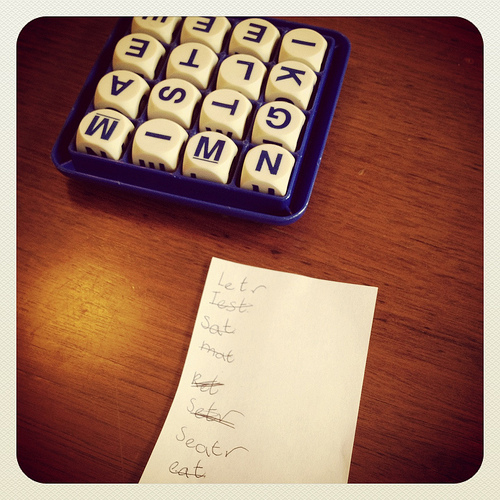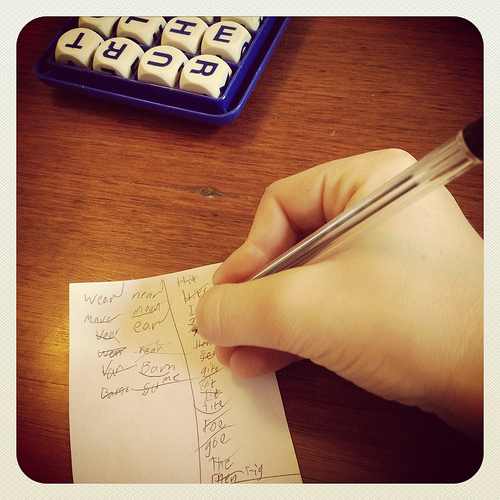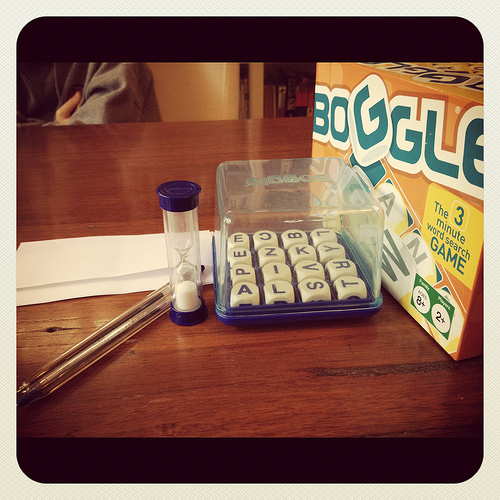This post on an Boggle is part of my 21 Challenge. I am taking The 21 Challenge to raise money to support homeless and at-risk young people in Australia. There are more than 32,000 young people who sleep on our streets every night and I blogging a kids activity daily to raise funds to go to Open Family Australia who support these youths.
My challenge is to blog daily an activity I do each day with my kids, using only things we have at home or use when we have on hand when we are out. series You can see all the children’s activities I have posted as part of the 21 Challenge by clicking on the tag 21 Challenge here.
Description:
Boggle is a word game where you try to find words in sequences of adjacent letters. It is such a quick game to set up and play, perfect for a distraction when things are going the wrong way in terms of sibling harmony. You use an egg timer and each game runs for 3 minutes. But although it is quick it is also a great game for working on spelling and increasing kids vocabularly.
Age:

The game itself says 8+, but I have and do play with younger kids. It just requires playing a little differently and a few tips going their way.
Materials needed:
The game of Boggle, available widely at most chain and toy stores, for less than $25.
Aim:
Speedy Fun!
Opportunities for learning:

Lots of spelling and literacy opportunities to discuss when playing a word game like Boggle. It is great as it can happen as they occur naturally throughout the game like:
- At the end when you are going through the words, point out to the kids to look for base words, eg if there was wipe, look around to see if you can extend on the word to make wipes, wiper, wipers, wiped, wiping etc.
- Encourage the kids to look at word families. For the younger kids (under 8 ) when we are playing, I might say something like, can you see “at” try and see how many “at” words you can make.
- Show them to look inside bigger words for smaller words (helpful skill for fluent reading). For example they may find the word “treat” which contains “eat” or “hear” which contains “ear”.
- Discuss common spelling mistakes. When going through the list, talk about why a word might not be correct and what letters they would have needed to spell it correctly. Eg “neat” has “ea” not “ee”.
Additional resources:
- You can play Boggle online (free) at the these websites (contain ads) – Wordshake and Boggle Online (not official).
- There is a free app for Boggle on iTunes (contains ads).
I love playing Boggle with the kids. Are you a Boggle fan?

